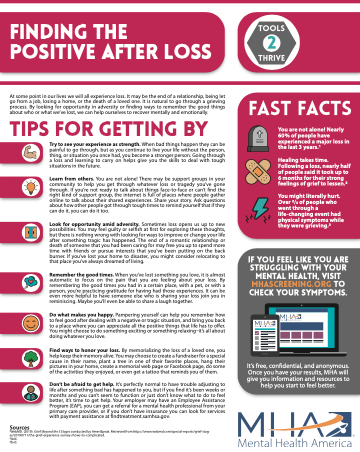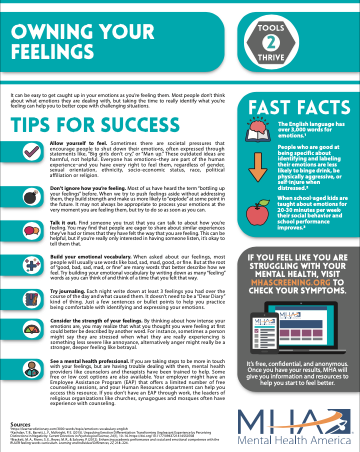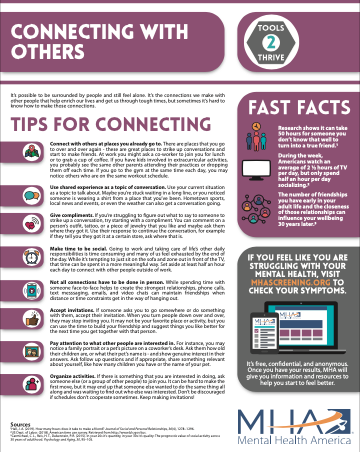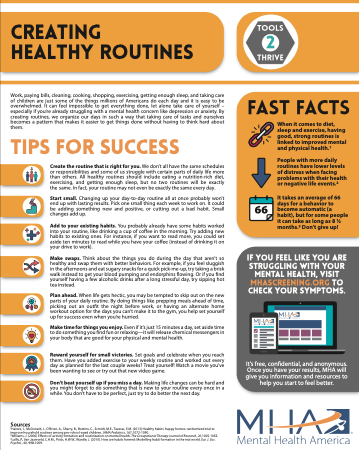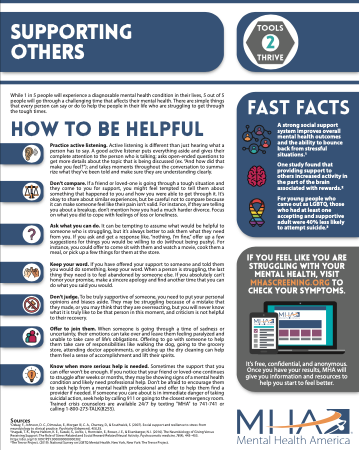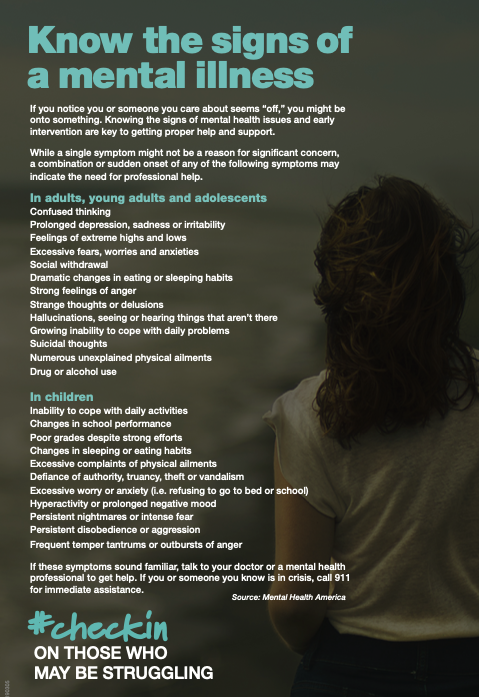Mental Health Tool Box
MENTAL HEALTH 101
Sometimes, even when we’re doing all the right things to stay well, we may still need help. The stress of the last year is making us all more aware of the need to support our mental health. Learning more about mental health skills to fill our toolboxes will help us to manage the speed bumps in life. The following is some information on mental health and what it entails.
Signs You or Someone You Know Might Need Help
So how do you know you might benefit from professional help? These are common signs that a person might benefit from therapy.
Changes in sleeping or eating habits or sex drive
Not being able to concentrate due to many things going through your mind
Unable to relax or calm down
Impatient with or irritated by minor problems
Not able to make decisions
Daily activities or everyday problems and stress are too much to handle
If you or someone you know is experiencing any of the following, it’s time to get professional support:
Big mood changes
Hearing, seeing, or believing things that are not real
Overusing alcohol or drugs
Thoughts of killing oneself or hurting yourself
Types of Therapy
There are many types of therapy. Therapy can help with stress, depression, anxiety, alcohol and drug use, marital problems, eating disorders and severe mental illness. All are available individually or in a group. Group therapy can give you the opportunity to practice new skills in a safe place.
Standard Talk Therapy is a way to process current and past events with a therapist as your guide. Therapists may use any number of techniques, and may include any of the types of therapies listed below, according to your needs. They help you look inward, discover what triggers negative feelings, develop coping and problem-solving skills, and build greater self-awareness.
Cognitive Behavioral Therapy (CBT) focuses on addressing the problems you are facing in the moment. Little time is spent thinking or talking about the past. It’s generally a short-term 12-week approach. Through daily homework you learn to identify and change your thinking and patterns of behavior that negatively impact on your life.
Dialectical Behavior Therapy (DBT) teaches practical skills to regulate emotions, strengthen and maintain personal relationships, and increase patience for situations that cause you stress. Radical DBT is a type of therapy that helps people whose thinking is rigid and overly perfectionistic.
Eye Movement Desensitization and Reprocessing Therapy (EMDR) helps people move past painful or traumatic experiences by reducing the negative feelings connected with the experience. The therapist uses eye movements, tapping sensations and sound to lessen the impact of past experiences.
Finding a Therapist
Once you decide to go to therapy, you’ll need to find a therapist who is a good fit for you. Here are a few more tips on finding a provider:
Ask Around. Do you know someone who loves their therapist? Ask for a recommendation. You can also go to your insurance company’s website for a list of providers covered by your insurance.
Don’t be afraid to shop around. You don’t have to stick with the first therapist you meet. Or the second! If their style doesn’t work for you, look for someone else. Your therapist won’t be offended because they also want the relationship to work for you.
Don’t get too caught up in the letters after a name. LPC, LCSW, LMSW, PhD, LMFT – any of these individuals are trained mental health professionals who may be a good fit for you.
Don’t be afraid to ask a lot of questions. Ask a lot of questions so you feel as comfortable as possible. You can ask what types of therapy they use and anything else you may be curious about.
Once you have some therapists in mind, here are a few questions to think about when choosing someone.
Do they accept your insurance, or do they require self-pay? Do they offer a sliding scale fee? Is their physical location convenient for you, or do they offer remote or teletherapy?
Are they culturally competent? For example, you may prefer to work with someone who looks like you or has a similar background.


